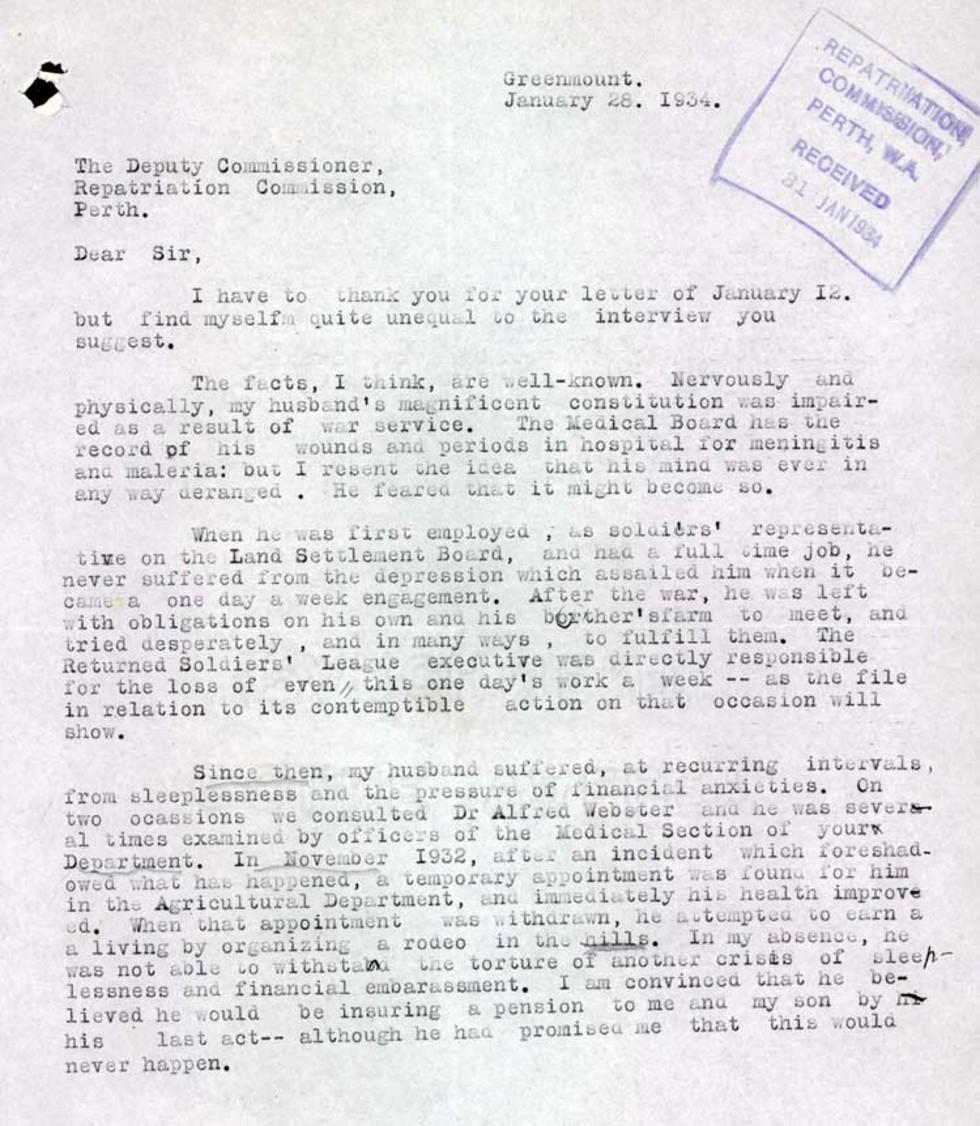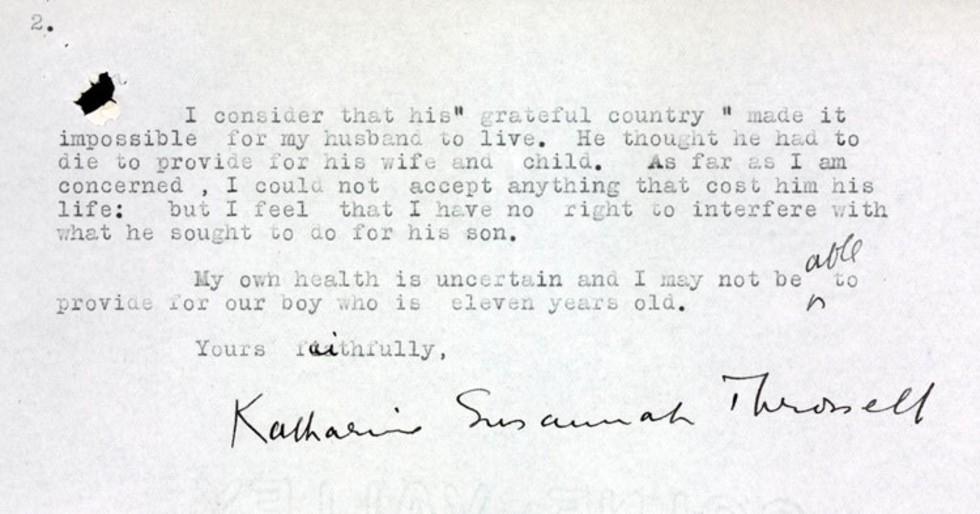

Aboriginal and Torres Strait Islander people should be aware that the National Archives' website and collection contain the names, images and voices of people who have died.
Some records include terms and views that are not appropriate today. They reflect the period in which they were created and are not the views of the National Archives.



[Page 1.]
[Stamped in purple ink: ‘REPATRIATION COMMISSION, PERTH, W.A.’, ‘RECEIVED’, ’31 JAN 1934’.]
Greenmount.
January 28. 1934.
The Deputy Commissioner,
Repatriation Commission,
Perth.
Dear Sir,
I have to thank you for your letter of January 12. [sic] but find myself quite unequal to the interview you suggest.
The facts, I think, are well-known. Nervously and physically, my husband’s magnificent constitution was impaired as a result of war service. The Medical Board has the record of his wounds and periods in hospital for meningitis and maleria [sic]: but I resent the idea that his mind was ever in any way deranged. He feared that it might become so.
When he was first employed, as soldiers’ representative on the Land Settlement Board, and had a full time job, he never suffered from the depression which assailed him when it became a one day a week engagement. After the war, he was left with obligations on his own and his brother’s farm to meet, and tried desperately, and in many ways, to fulfill [sic] them. The Returned Soldiers’ League executive was directly responsible for the loss of even this one day’s work a week -- as the file in relation to its contemptible action on that occasion will show.
Since then, my husband suffered, at recurring intervals, from sleeplessness and the pressure of financial anxieties. On two occasions we consulted Dr Alfred Webster and he was several times examined by officers of the Medical Section of your Department. In November 1932, after an incident which foreshadowed what has happened, a temporary appointment was found for him in the Agricultural Department, and immediately his health improved. When the appointment was withdrawn, he attempted to earn a living by organizing a rodeo in the hills. In my absence, he was not able to withstand the torture of another crisis of sleeplessness and financial embarrassment. I am convinced that he believed he would be insuring a pension to me and my son by his last act -- although he had promised me that this would never happen.
[Page] 2.
I consider that his “grateful country” made it impossible for my husband to live. He thought he had to die to provide for his wife and child. As far as I am concerned, I could not accept anything that cost him his life: but I feel that I have no right to interfere with what he sought to do for his son.
My own health is uncertain and I may not be able to provide for our boy who is eleven years old.
Yours faithfully,
[Handwritten signature:] Katherine Susannah Throssell
Learn how to interpret primary sources, use our collection and more.
